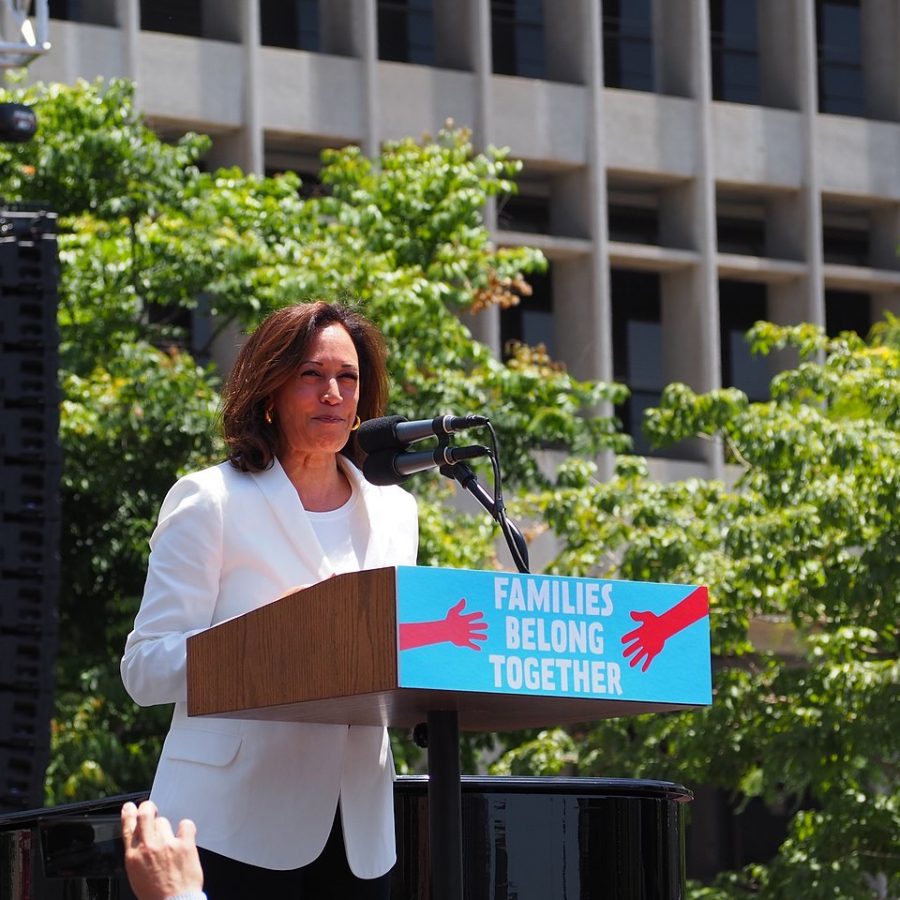Record number of women announce candidacies for 2020 presidential election
2020 presidential candidate Kamala Karris (D-CA) speaks at a Families Belong Together March in Los Angeles in 2018.
February 25, 2019
When Hillary Clinton ran against Donald Trump in the 2016 presidential election and almost won, it turned heads across the country. This game-changing election paired with current political tensions inspired six women of multi-ethnic backgrounds to declare candidacy for the 2020 presidential election: Senator Amy Klobuchar of Minnesota, Senator Elizabeth Warren of Massachusetts, Senator Kamala Harris of California, Senator Kirsten Gillibrand of New York, author and motivational speaker Marianne Williamson and Representative Tulsi Gabbard of Hawaii. Never before have this many women from a major party declared candidacy at the same time.
By the 2018 midterms, some of the more outspoken Congresswomen—Kamala Harris, Kirsten Gillibrand, Amy Klobuchar and Elizabeth Warren—had already announced their plans to participate in the 2020 presidential election. They emboldened others to do the same, assisting in this progressive political momentum, momentum that extends not only to women, but to multiracial candidates as well. Never before has America seen such a diverse turnout in presidential candidates—those who most likely rejected the idea of announcing candidacy previously for fear that they might not fare well against white nominees.
Before the 2018 midterms, the number of women to announce their presidential candidacy simultaneously maxed at two. Only one out of all 31 women nominated—41 women if including running multiple campaigns—to run for president, Clinton was the closest to winning a presidential election. Prior to the 2016 election, six women planning to run for president at the same time was almost inconceivable and, frankly, foreign to America. Despite this revolutionary development, surprisingly few people discuss its significance, and much less express shock concerning this record number of women running for office.
Additionally, more women than ever are part of Congress. There are now 25 women in the Senate and 87 in the House of Representatives. The number of women in Congress has drastically increased since 1997, and continues to grow.
These women in office will likely inspire more women of future generations to continue to run for office—these six presidential nominees and the 110 women currently in Congress extinguish the expectation for women to run for office one at a time and instill a more progressive mindset in which women have a more equal standing.



